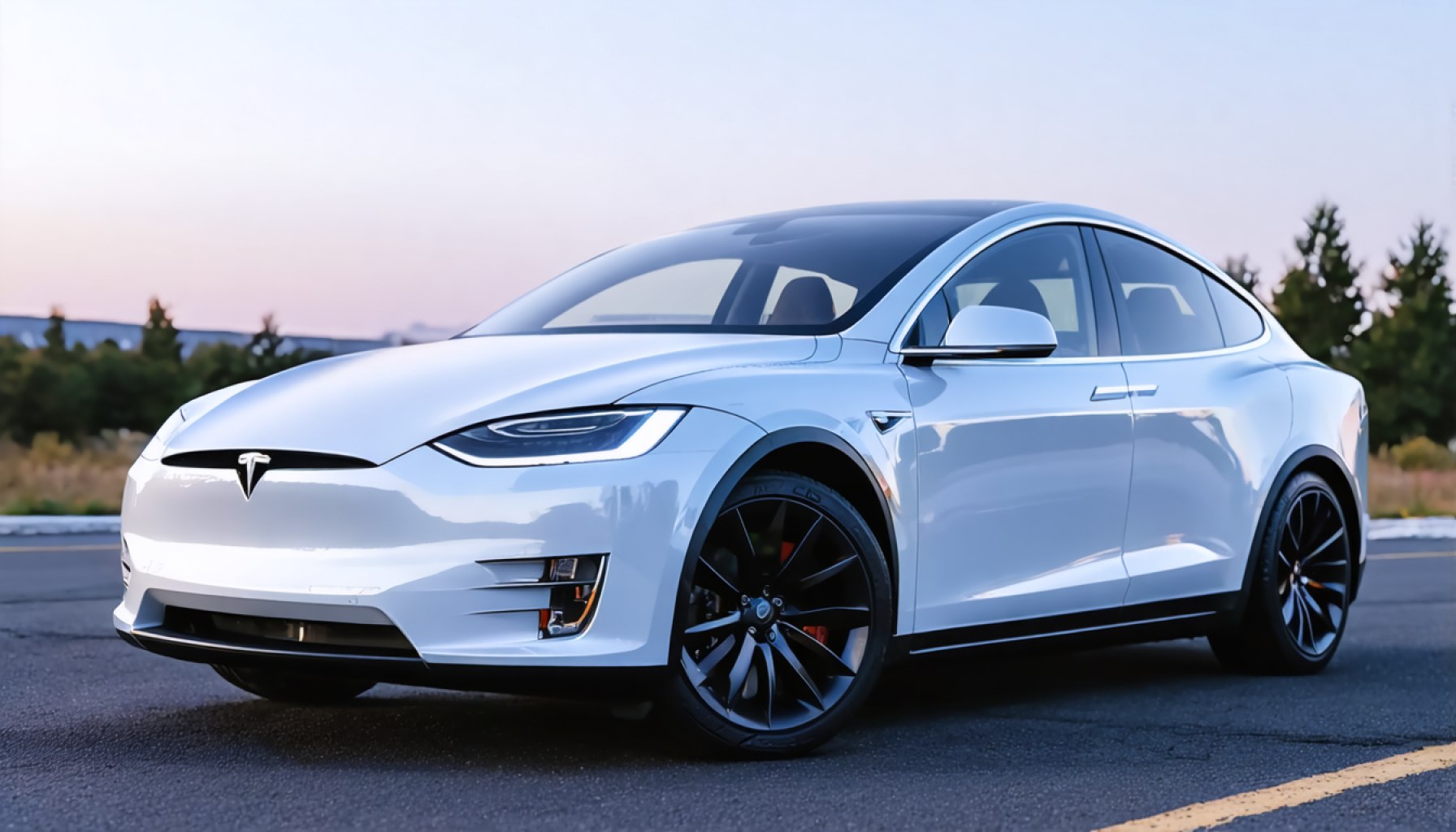- Tesla has acquired bankrupt German company, Manz AG, to enhance its production capacity and efficiency, marking a strategic shift in industrial automation.
- The acquisition includes key assets like a facility and 300 skilled employees, integrating Manz AG’s advanced robotics and precision machinery into Tesla’s operations.
- This move aims to transform Tesla’s gigafactories into automation exemplars, potentially reducing production costs and accelerating electric vehicle manufacturing.
- The acquisition underscores Tesla’s vision of integrated human-machine collaboration in manufacturing, pushing boundaries in automated production.
- Challenges include employee layoffs and ethical concerns over job displacement, as Tesla navigates the balance between innovation and social responsibility.
- This bold strategy may redefine industries, as Tesla endeavors to lead an automated industrial revolution, despite operational hurdles and societal debates.
Tesla, the electric vehicle titan known for pushing boundaries, recently made a strategic leap into the heart of industrial automation by acquiring the ailing German company, Manz AG. This pivotal move aims to turbocharge Tesla’s production capacity and efficiency, as it continues its pursuit of technological supremacy.
Enter Manz AG
Nestled in Reutlingen, Germany, Manz AG was a beacon of innovation, specializing in robotics and precision machinery. A linchpin in technological manufacturing, its trajectory took a sharp dive when financial turmoil led to a bankruptcy declaration in December 2024. However, where chaos reigned, Tesla saw potential—a treasure trove of innovation and expertise ready to be salvaged and repurposed.
Tesla swooped in, acquiring key assets, including a facility and 300 highly skilled employees. By seamlessly integrating Manz AG’s cutting-edge technology and workforce, Tesla not only enriches its gigafactories but also fortifies its foothold in the burgeoning realm of automated vehicle production.
The Stakes: Why This Acquisition Matters
Tesla’s global ambition is clear: transform its gigafactories into paragons of automation and efficiency. By leveraging Manz AG’s advanced robotics and expertise, the company gains a formidable edge, aiming to slash production costs and accelerate electric vehicle manufacturing. This strategic infusion of automation positions Tesla to outpace competitors, promising quicker turnarounds and expanded capacity.
But the implications stretch beyond mere numbers. This acquisition reflects a broader vision—robots building the future, where machines seamlessly work alongside or even replace humans in the factory line. Tesla, under the visionary helm of Elon Musk, has often championed this mechanization mantra; now, it’s on the cusp of turning that vision into reality.
Challenges on the Horizon
Despite the promising gains, Tesla faces a moral quandary and operational challenges. The move necessitates tough decisions; approximately 100 Manz AG employees face layoffs as Tesla optimizes its workforce for strategic coherence. This reduction, while aiming for operational efficiency, ignites an enduring debate on automation’s impact on employment.
As Tesla marches toward a fully automated future, societal concerns over job displacement loom large. The balancing act between innovation and ethical responsibility becomes ever more precarious, posing fundamental questions about the future of work and our reliance on mass production.
The Road Ahead
Undeterred by the challenges, Tesla’s quest to lead an automated industrial revolution is unmistakable. This acquisition serves as a crucial step in its unfolding narrative—a tale of ambition, innovation, and profound transformation in the automotive industry. Whether this bold strategy heralds a triumphant future or stumbles over unforeseen obstacles remains to be seen, but one fact is undeniable: Tesla is crafting a production model that could very well redefine industries worldwide.
In a world on the brink of a new industrial era, Tesla dares to imagine and implement what others only dream of. As the dust settles on this groundbreaking acquisition, the industry watches, poised at the threshold of tomorrow’s possibilities.
Tesla’s Bold Move: What the Manz AG Acquisition Means for the Future of Automation
Understanding the Impact of Tesla’s Manz AG Acquisition
Tesla’s recent acquisition of Germany-based Manz AG, a company renowned for its expertise in precision machinery and robotics, marks an ambitious leap toward escalating its automated production capabilities. With this strategic move, Tesla aims to supercharge the efficiency and effectiveness of its gigafactories, fortifying its position as a leader in the ever-evolving electric vehicle market.
Uncovering Tesla’s Strategic Vision
1. Integrating Cutting-Edge Technology:
– Tesla’s integration of Manz AG’s technology seeks to enhance robotics and automation within its production facilities. By doing so, Tesla aims to lower production costs and expedite manufacturing processes, reinforcing its competitive edge in the EV sector.
2. Addressing Production Scalability:
– The acquisition underpins Tesla’s goal to expand its production capacity. Automation technologies from Manz AG are anticipated to bolster the scalability of Tesla’s gigafactories, enabling the production of more vehicles at an accelerated rate.
3. Impact on Global Manufacturing Trends:
– Tesla’s focus on automation aligns with broader industrial trends. Other automotive companies may follow suit, prioritizing similar acquisitions to stay competitive. This move underscores the growing emphasis on automation as a central pillar for future manufacturing.
Challenges and Implications
1. Workforce Optimization vs. Job Displacement:
– While Tesla retains 300 employees from Manz AG, about 100 face layoffs, illustrating the challenge of balancing technological advancement with ethical employment practices. This decision raises significant societal debates about the future of work and automation’s impact on jobs.
2. Navigating Ethical Responsibilities:
– Automation brings with it moral and ethical considerations. Companies like Tesla must weigh the benefits of technological innovation against potential societal drawbacks, such as decreased job opportunities for factory workers.
Expert Insights and Industry Predictions
1. Automation’s Economic Impact:
– Analysts predict that Tesla’s focus on automation could lead to significant economic benefits, potentially reducing vehicle costs for consumers and increasing corporate profits through efficiency gains.
2. Future of Automated Manufacturing:
– As robotics and automation continue to evolve, companies in various sectors may increasingly rely on these technologies. This could result in widespread efficiency improvements across the manufacturing landscape, reshaping how industries operate globally.
Actionable Recommendations for Industry Leaders
1. Embrace Automation Wisely:
Industry leaders should consider integrating smart automation technologies that enhance productivity while also implementing robust retraining programs for displaced workers.
2. Foster Ethical AI Development:
Companies must establish ethical guidelines for AI and automation technology deployment, ensuring transparency and fair treatment of employees impacted by technological changes.
3. Stay Agile:
Adopt a flexible approach to manufacturing innovation, allowing for rapid adaptation to new technologies and evolving market demands.
Relevant Link
– Tesla
Tesla’s purchase of Manz AG signifies more than just an expansion—it’s a glimpse into the potential future of manufacturing. By melding innovative technology with strategic foresight, Tesla is poised to redefine industry standards. As other companies take note, the world watches to see how this automation evolution will unfold, setting the stage for an electrifying era of industrial advancement.












